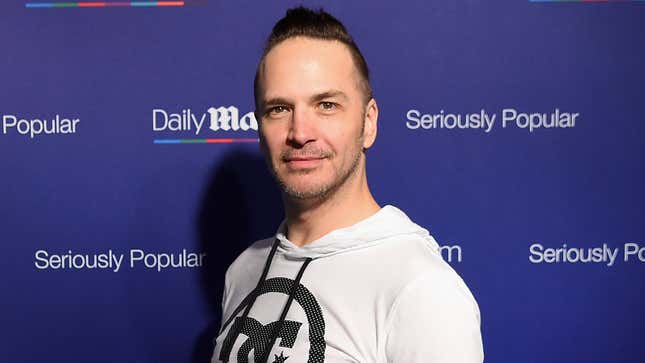Michael Alig's Desperate Third Act
Latest

Michael Alig ripped through culture like an overly loud cackle at a party, and he went out with a whimper. The visionary party promoter and style icon was one of the best-known members of a loose-knit, attention-grabbing group of hardcore denizens of the ’80s and ’90s New York nightlife scene, known as the Club Kids. His 1996 killing of his friend and drug dealer Andre “Angel” Melendez cemented the Kids’ legacy with a horrifying coda, chronicled in James St. James’s acclaimed book Disco Bloodbath and immortalized in a documentary and narrative film, both named Party Monster. Alig served 17 years in prison for killing Melendez (he pleaded guilty to manslaughter), and was released to much fanfare in 2014. He died on Christmas this year in his Washington Heights apartment of a heroin overdose, according to his mother. He was 54 years old.
Alig told me a few years ago that he never thought he’d live to see 50, so anything that came after that milestone was gravy. But oh, was the gravy lumpy. In 2016, I was assigned to profile Alig for Maer Roshan’s short-lived reboot of the queer lifestyle magazine 429, which is now defunct. The story didn’t interest me initially. I hadn’t really known who Alig was before he killed someone alongside his roommate Robert D. “Freeze” Riggs (who also served a prison sentence) so in my mind, he was defined more by his crime than his creativity. More press felt like an undeserved reward for the attention-voracious Alig—especially since Melendez has always been an afterthought in Alig’s public narrative. As a culture, we tend to care more about killers than their victims, just as we have historically tended to center white voices (Alig was white; Melendez moved to New York from Colombia as a child with his family). The overlap made me wary and a little queasy.
But a mere glance at Alig’s life two years out of prison intrigued me. He was flailing. He was promoting a Monday night party he cheekily named Outrage at the Rumpus Room, a small club on the Lower East Side. The night I went, attendance was sparse, a shadow of the some 5,000 people he could pack into Limelight during his heyday. Few of the creative endeavors he teased upon his release from prison had manifested—no memoir, no reality shows. It seemed to me that Alig was still serving a sort of sentence, that the prison bars he spent 17 years behind were ultimately immaterial.
-

-

-

-

-

-

-

-

-

-

-

-

-

-

-

-

-

-

-

-

-

-

-

-

-

-

-

-

-

-

-

-

-

-

-

-

-

-

-

-








































